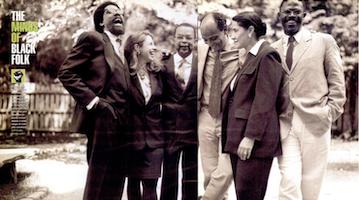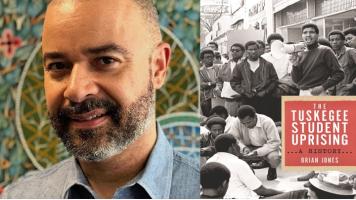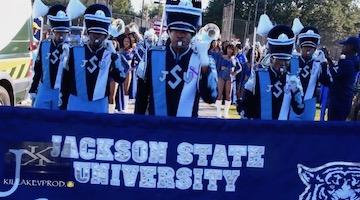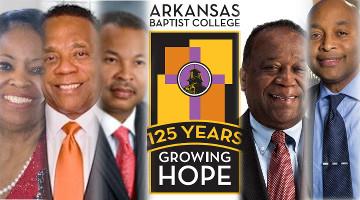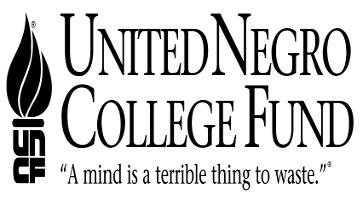Questioning Authority has never been popular at HBCUs... that needs to change
The questions below are offfered to help us look deeper into the crises of our Historically Black Colleges and Univerisites. By thinking about, by answering, and by discussing questions like these with your fellow students, with your instructors, and especially with campus workers, it's our hope that you can better organize your own public statements intended to expose injustice and exploitation at your HBCU, and contribute to a greater understanding of the national HBCU crises and its possible remedies.
Email me at nzingadamu@protonmail.com and we will help edit and publish the better submissions in defense of the coming rebellions and protests at HBCU campuses.
“Question Authority,” an accomplished scholar of Black Nationalism and Black religion has noted, has never been a popular slogan in Black freedom movements. This tells us about the limits of our strategies in building independent Black institutions, at projecting independent values. , and how we think about Black education and community formation. We need to question authority more at our HBCUs for our student rebellions to be more effective. We don’t have primarily customer service problems at out HBCUs. We have problems rooted in the unequal and unjust nature of education in a society marked by hierarchy and domination. These reproduce not simply what white racists do to Black people but what Black misleaders do to our own community.
One of the challenges with looking at “corruption” at HBCUs is it is a word that suggests “bad apple” theory as in “one bad apple spoils the bunch.” Many HBCUs have historical and contemporary merit. But when did so many become “spoiled?” And how does corruption at one spoil or impact the reputation of others? If there is a similar pattern of abuse and exploitation at most HBCUs, in terms of the quality of education, financial aid, campus security, sexual abuse or authoritarian college presidents or boards of trustees these are matters related to the wider society.
If something is corrupt it is immoral, unprincipled, shameless, sinful, degenerate, warped, contaminated, tainted. These words suggest that something basically good has been distorted either by exceptional individual acts of depravity or a supernatural force like evil.
HBCUs, at their origin, were a response to the doctrine of “separate but equal” that exploited Black labor under Jim Crow. It is true that a qualitative Black autonomous education and culture need not be primarily integrated or multi-racial. But is it not peculiar that many defenders of HBCUs today also defend equally mainstream values about politics and economics in the U.S.? How many speak of Black autonomy at HBCUs and celebrate the proliferation of Homeland Security degrees and programs? These HBCU advocates clearly are not trying to build autonomous Black communities or affirm Africa but are allies of empire. Why would such people not exploit ordinary Black people? Don’t they define Black autonomy as their own personal self-reliance first at the expense of other Black people?
When has schooling in our society been organized so all have basically a good experience and equal outcomes? Is race and gender the only factors that restrict opportunity? And opportunity, like corruption, can be an imprecise word that also obscures much. Do we accept that some have an opportunity to eat and have housing and healthcare and others do not? Do we accept that humans should have these necessities but to different measures of quality? Why should this be a common disposition found at out HBCUs?
If something is corrupt it suggests a breach of trust or a deterioration of what was formerly a normatively qualitative thing. And this item, good, institution or person, the accusation of “corruption” assumes we were correct in trusting and affirming previously.
As we ask questions about HBCUs we are not asking so much comparative questions about other colleges and universities, that may be predominantly white. We don’t model independent Black education on what white racists, capitalists, and imperialists accept for themselves. We are asking what Black community institutions should look like, and what principles they should uphold, when we design and lead them? This is the basis of our concern about what many term “corruption.”
Maybe we wish to talk about injustice, exploitation, misuse, or manipulation instead of corruption. But if we start making this shift, we have to take responsibility not just for exposing ethical lapses in others but taking account of our own previous blind spots and mistaken ideas about what was an empowering future, and how we can secure that together.
Schooling in capitalist America is a contract or agreement that says those who have more degrees and certifications probably deserve to have more economic and political power, and social privileges than those who do not. This accepts a division not just of social classes but exploitation and lack of democracy among the Black community itself. Do we accept that those with more titles and honorifics have a right to rule from above society, and those who have less should expect less power, democratic participation, accountability, and capacity to control one’s own destiny? This problem, more than we realize, in addition to “corruption” with financial aid, residence halls, food, etc. is what we are fighting at HBCUs.
By questioning authority, we may uncover illegal, unethical, and immoral things at HBCUs. But we also have to gather facts and experiences that analyze more sharply many of our own previously held beliefs about “the dream” of “success” in white supremacist, patriarchal, and capitalist America. We have to ask questions that we did not ask previously about hierarchy and domination, ecological destruction, and power to the common people even when Black people already hold coveted positions above society.
There are certain obstacles that HBCUs face as a result of historical inequality. There are certain hindrances we face as a result of more contemporary injustices. But we have to ask questions about institutions themselves and the obstacles we place in our own path. Otherwise, we can speak about “corruption” and really never get to the root of the matter.
It’s been easy up till now for HBCU administrators to abuse our trust, because we haven’t asked questions that get to the root of the problem. We don’t have customer service issues. We have purpose issues, power issues. Getting to the root of HBCU corruption requires us to question and to rethink the very purpose of education in a profoundly unjust, unequal and racist society.
That said, here are some questions for students, parents, and HBCU workers to keep in mind as we tell our stories and chart the terrain which must be changed.
-
What motivated you to be a student, faculty, parent of a student, and/or staff member at your HBCU specifically? Are you currently on campus? If not, when were you on campus?
-
What does your HBCU claim its mission and goals are? Are you disappointed in the gap between the rhetoric and reality of what this HBCU represented? What were the events or moments that made you question that perhaps this institution was betraying a trust?
-
What is the general quality of students admitted to your school? Are they ready for college on a basic skills level? What percentage of students do you think need remediation or extra help to be up to a reasonable standard to succeed as a college freshman? How might you be aware of the problems being faced by a large number of poor-quality students?
-
Many HBCU students across the country say “I love my HBCU, but I hate the financial aid office.” What is going on in these HBCU financial aid offices, and at your HBCU in particular, that gives rise to contradictions like this?
-
Would you say your HBCU’s problems are more matters of “mismanagement” rather than of “stealing?” How might it be both? Can we separate out the difficult circumstances that all HBCUs must overcome from the matter that there is corruption or exploitation of Black students that need not to be stopped? Please explain.
-
At many HBCUs, there have been reports and student protests that financial aid monies have been “stolen” from students. Are you aware of any evidence of how this “stealing” happens or how it might work on your campus?
-
At many HBCUs there are crises related to student housing, from mold to students being asked to live in closets, to environmental problems with construction and catastrophic economic deals. Are there problems with student housing on your campus?
-
Is the food of poor quality on your HBCU campus? Have you ever felt those responsible for administering food services may be stealing food or over-ordering food or running out of food because they had a catering business on the side? We know this has occurred elsewhere.
-
Do the coaches of HBCU sports teams pocket the monies from the sale of tickets and concessions and not turn these in to the chief financial officer at the college? We know this has happened occasionally as well in some institutions.
-
What is the quality of the library at your HBCU? Does it have the resources you require to study both for classes and for your own self-development?
-
Do you ever wonder by what measure the agenciies responsible for accrediting your HBCUs decides whether or not it is s meeting the applicable ethical financial and/or academic standards for a four-year college? Do you ever wonder whether the federal government (the MSURSD office of the Dept of Education) monitors the financial standing of institutions like your HBCU, or whether they approve of what goes on at this campus?
-
Are you familiar with an outlook on Black business and so-called "entrepreneurship" which sometimes views HBCUs not as educational institutions but as blocs of wealth available for the profit seeking activities of its trustees, officers, contractors or those who do business in its name? Do you know what "venture capital" is, and have you ever heard your institution referred as such?
-
Does your HBCU preach strange ideas about cleanliness and appearance, especially around whites, as the key to success as if some of our people believe we are “dirty?” Booker T Washington famously preached “the gospel of the toothbrush.” Supposedly that's how white folks got their power and wealth. If we are independent and prideful why are some HBCUs contributing to backward notions like these?
-
Does your HBCU invite white folks to hear Black students sing for them or play music? We understand our people sing beautifully and have musical talent. But do you ever get the feeling we are on display to white donors to prove to them we have “soul” but not for our full scientific range or intellectual accomplishments?
-
What is the quality of teachers at your HBCU? Would an impartial observer recognize most of them as above average in their teaching methods, as scholars, or as intellectuals? Do most encourage critical thinking? Are you aware of how the performance of your instructors should be evaluated?
-
Look at your course catalog. Are many African or Caribbean history, art or philosophy courses offered? Is African American history taught with global aspects? Does your college really teach independent values? Or does their “black” talk seem devoid of content?
-
How is the science and technology education at your HBCU? Are the programs, resources, and teachers everything that was promised when you chose to attend? Is great scientific research happening at your school? If not, then why?
-
Does your HBCU use religion to control and place fear in the heart of its students? Does your HBCU preach a prophetic faith against empire and domination or a faith that tells us we can be blessed somehow in the devil’s world? Of course, we can find love and grace in this world and that is a blessing. But do they promote the blessings of wealth and material items over a faith that challenges abuse of power?
-
How safe is your HBCU campus? Is there a problem with crime or sexual assault greater than the wider community or society? Why might this be the case?
-
As a student worker on campus, whether in financial aid or in admissions or in the president’s office, have you observed anything that is disturbing happening not in the best interest of students or the community?
-
Are students at your HBCU compelled to take classes such as Developmental Math or Basic Reading and Writing that seem to be pegged to the standards of grade school or junior high? Do you ever feel that instead of college you are paying for high school again?
-
Have you ever found your student accounts billed for classes you never took or signed up for? Is this a frequent experience of HBCU students?
-
Do some faculty and administrators sexually prey on the young men or women under the guise of mentoring in business or sports? While most college students are legal adults, and we might assume that adults can “handle their own business,” are there any inappropriate behavior going on between leaders and subordinates in the campus workplace that clashes with the church morality that is preached by the leadership of the college?
-
How does the HBCU college president or board of trustees use “race pride” to discipline and repress the students? Can a false “black consciousness” be used to silence students and the wider community about improprieties and squelch those who might otherwise protest or make appeals to fix things? Do some HBCU faculty and administrators shame students and community into not demanding accountability from HBCUs?
-
Do some HBCU faculty, pretending to be progressive, seem to have a special role of shadowing progressive student activists to mentor them into pathways that don’t lead to real rebellion?
-
Can you tell us one story of a teacher or student or staff person working under adversity who is doing amazing things in an HBCU environment that is not supportive or hostile to doing the right things?
-
Can you tell us a story about an outstanding administrator, financial aid counselor, or customer service representative at your HBCU? Why do they stand out?
-
Do you feel that basic customer service and administration at your HBCU are somehow “embarrassing”? Does it seem to fulfill racial stereotypes regarding the backwardness of our people? You should know that Black folks are competent administrators by normative societal standards in many public and private institutions all across the country? Are you made to feel that to criticize how Black folks function at your HBCU is to give Black folks a bad name?
-
Are you aware of any student protest at HBCU that has been covered up, repressed, or derailed? What were the strengths and weaknesses of this student resistance? (Feel free to write a concise history of a recent HBCU student rebellion)
-
Do you regard the college president at your HBCU as an ethical person? Assuming nobody is perfect and people of faith hesitate to judge others, is she/he presiding over a huge scandal that would stand out as an outrage if the average person knew?
-
Are the Board of Trustees upstanding citizens? Have they been associated with sweet heart land deals, or business schemes which might lead one to ask whether they are exploiting the school for their own gain? Are these Trustees loyal to the mission they claim to serve at this HBCU?
-
Is your HBCU a place that is friendly to Black folks who are of the LGBTQ community? Are these folks present in large numbers but repressed or subject to hostile teaching?
-
Is your HBCU promoting leadership of Black women? Are Black women who challenge male domination elevated or women who seem to support silence about sexism in the campus community? Do Black women on campus always lead in the spirit of being “bougie and petty” or do some of our women on your campus speak out against self-serving and narrow agendas that exploit?
-
In the name of criminal justice education, or self-esteem and success mentoring, does your HBCU promote the idea that our people are damaged, embarrassing, must be adjusted and contained in some manner?
-
Does your HBCU encourage false ideas of “social justice” or “community service” that seem to evade the greatest crises facing Black people? For example, do they educate and organize about police murder of our people or organize self-defense against Klan attacks? Or do they seem to talk “race pride” and then collaborate with open racist forces. Capitalism produced slavery. Does anyone on your campus critique capitalism? Has anyone taught at your HBCU that it is better to make friends with wealthy white racists than activists, black or white, who challenge the system?
-
Black Liberation struggles are a local phase of a world problem. At its best, it is a mass democratic struggle of working class and unemployed Black folks for self-reliance linking up all over the U.S. and the world. Does your HBCU promote a narrow American patriotism that inconsistently points out white supremacy, male domination, and empire? Does it support the military and police while being silent about brutality and conquering of our people at home and abroad? If so, who expresses these ideas on your campus?
-
Do you think tuition should be free at all HBCUs? When we say “free” we mean no student loans or debt for anyone. You ever get the feeling that HBCUs have too cozy a relationship with banks and the government in their promotion of “financial aid?”
-
As a student do you ever talk with your parents or community elders about corruption at your HBCU?
-
How do they respond to your concerns? Do you ever talk to the campus staff or grounds crew who observe your troubles? What is their perspective on the HBCU crisis? What can you learn from their labors every day?
-
Does your HBCU sell “the dream” that anyone who works hard can have property, wealth, and happiness in the US? Does your HBCU accept that some of our people are unfit for employment, citizenship, and success? Does your HBCU have a critical outlook on how “the dream” or “success” accepts inequality and hierarchy among Black people?
-
Many HBCUs sell their legitimacy to white folks as its cheaper to educate Black youth then to pay to incarcerate them. Yet do you ever get the feeling your HBCU is a minimum-security prison for Black unemployed and real estate schemes? Is this why conservative whites and blacks attach themselves to our schools?
-
Do you think a Black Parents Movement fighting corruption at HBCUs might be helpful?
-
Are you familiar with the Freedom of Information Act request demanding the federal government disclose records of the financial monitoring of HBCUs? We can help you request these documents for your school as a part of raising awareness about the necessary struggle to root out corruption at our HBCUs.
-
Have you read the statement of the Committee for Reconciliation and Truth at HBCU’s statement on the crisis at our HBCUs?
-
Have you read “A Concise History of Protest and Repression at HBCUs”? This covers the 1880s to the early 1970s? Would you like to research and write about student rebellions at HBCUs in more recent times? Share a substantial draft with us and we will help edit and publish it.
-
How might we help coordinate national student protest of corruption at HBCUs?
If there is any other subject that we didn't ask about that is significant to you please share**
Ms. Nzinga Damu can be reached at nzingadamu@protonmail.com.

